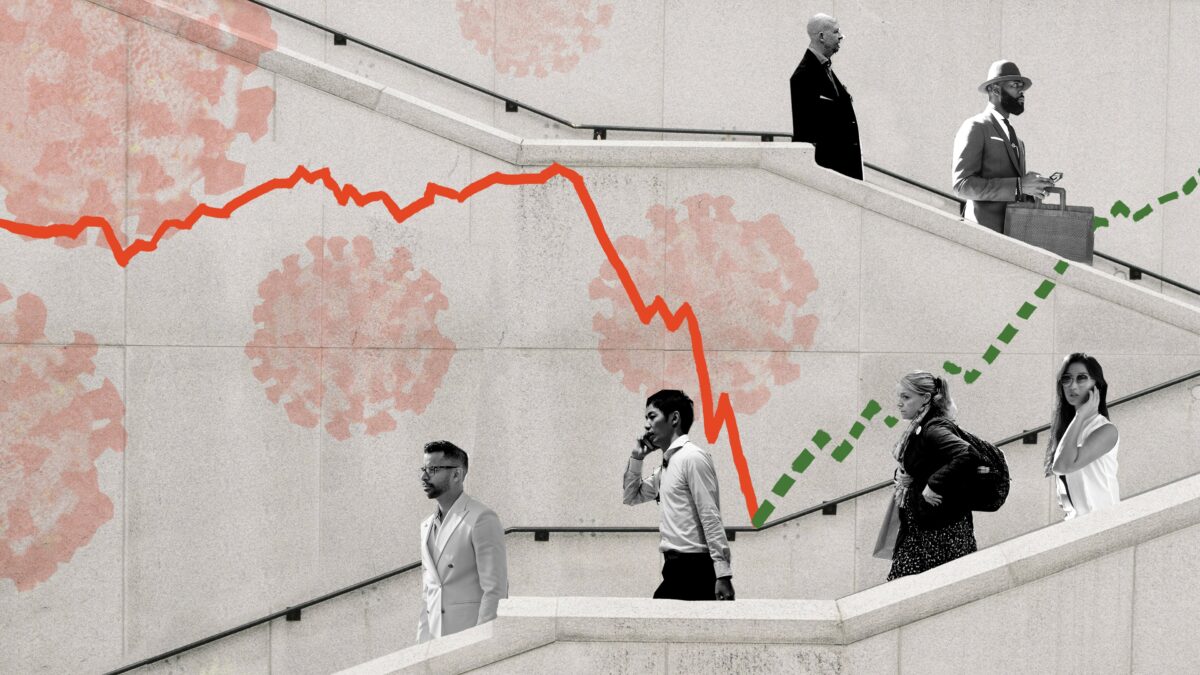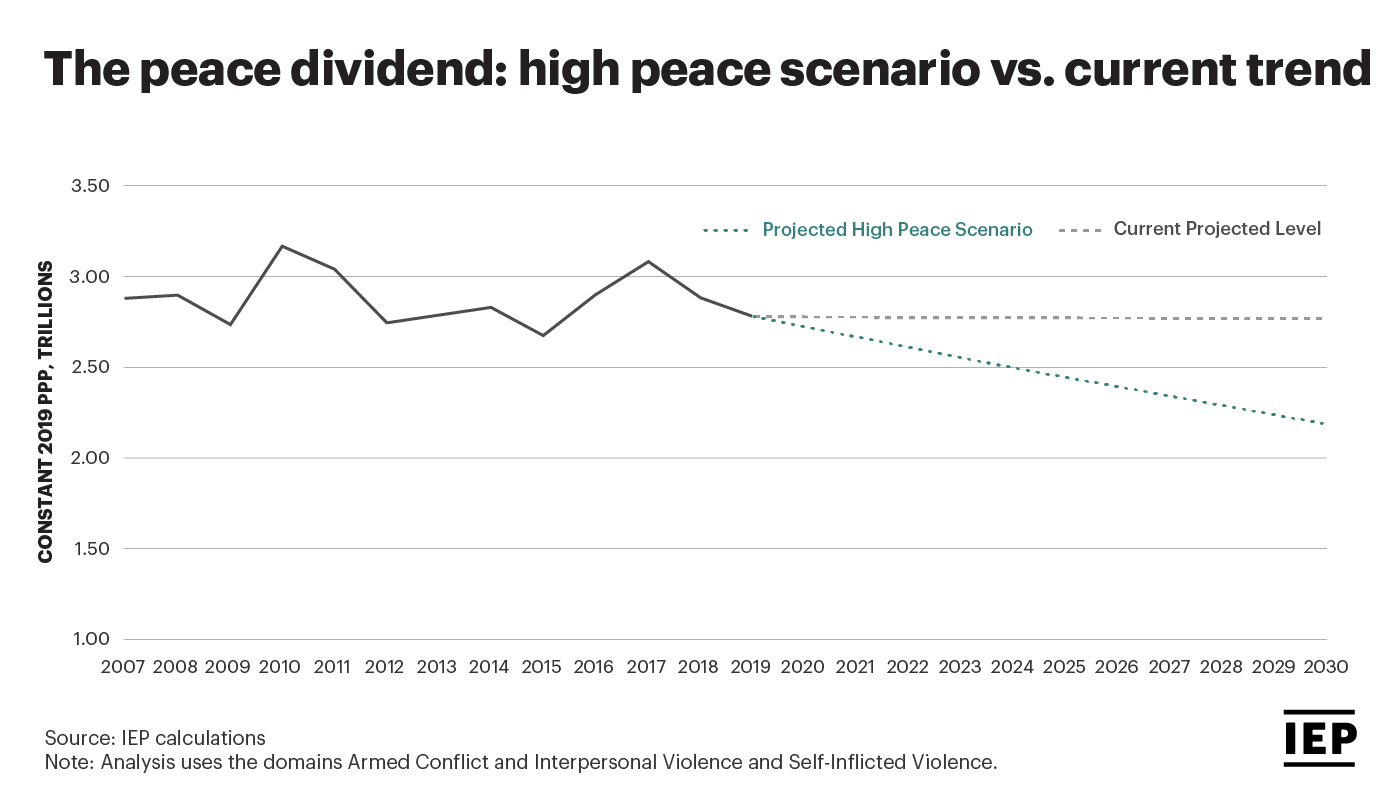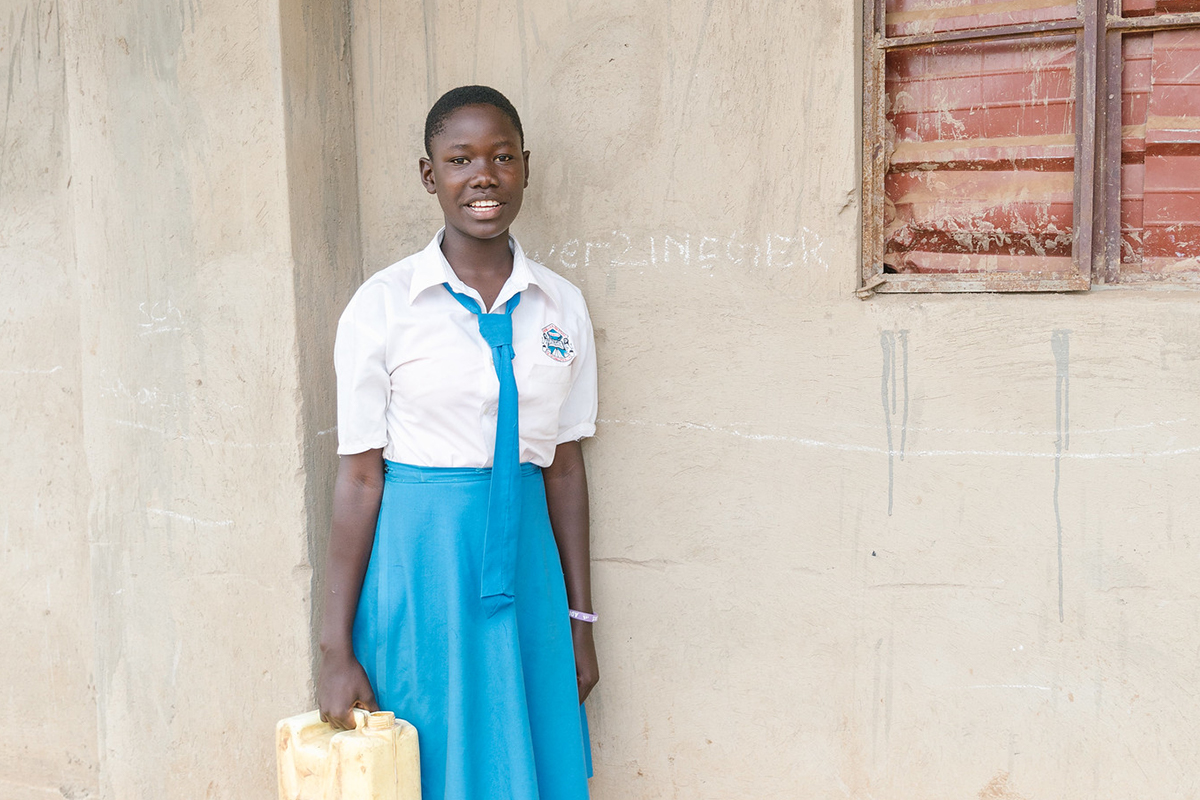Many countries will continue to spend to manage the global economic slowdown, but new ways of thinking are needed to make the world a more prosperous and peaceful place.
Faced with the unprecedented economic impact of coronavirus, many countries rolled out spending measures to address the downturn. As early as April 2020, a total of US$15.3 trillion had been pledged to COVID-19-related assistance and stimulus programs across the globe.
In 2021, vaccines are bringing us all hope, but economic contractions are lingering, public debt and deficits are rising, and the truth is the journey out of the recession is likely to be long and hard— can governments continue to spend to manage the slowdown?
Yes, many governments will. However, many will be unaware of the potential stimulus funding hidden within their balance sheets. It’s overlooked, if ever considered, but reducing violence and the costs associated with it, could provide the funds for future economic boosts.
Research from the Institute for Economics & Peace (IEP) shows that the global economic impact of violence was estimated to be $14.4 trillion in purchasing power parity (PPP). This equates to $5 for every person, for every day of the year. Given that 9.2 per cent of the world’s population live below $1.90 per day, redirecting some of this economic resource could provide significant economic gains to society and substantially help those that most need help.
The economic benefits accrued from reducing violence can be thought of as a peace dividend. With lower levels of violence, countries can reallocate resources from containing violence to other, more productive economic sectors, including health, education, business support or simply stimulate spending.
IEP estimates have found a $3.6 trillion PPP global peace dividend by 2030 if all other countries began taking steps to improve spending on violence in similar ways to the top 40 most peaceful countries in the world, as ranked on the Global Peace Index.
On an annual basis, this global peace dividend would free $360 billion PPP in funds then available for spending or stimulating, an amount that far exceeds the yearly figure spent on official development aid, which is US$166 billion.
Many of the less peaceful countries are also developing countries and reducing violence to gain the peace dividend could have further economic benefits for these poorer nations. Since 2000, countries that have improved in peacefulness have seen an average 1.4 percentage points higher GDP per capita growth per annum when compared to countries that have become less peaceful. This is a significant difference — over 20 years compounded GDP per capita could be 30 per cent larger.
Related Articles: COVID-19 Impact: Is “Inclusive Capitalism” Part of the Way Forward? | To Build Back from COVID-19, Don’t Overlook Informal Workers
Governments working to reduce violence would not forgo their national militaries or police forces. Indeed, spending on personal security or protection against external threats is a justifiable expense. However, governments must be careful that expenditure on containing violence in society does not go beyond optimal levels because this has the potential to constrain a nation’s economic growth.
Putting a price tag on peace and violence helps us see the disproportionate amounts we spend on creating and containing violent acts compared to what we spend on building resilient, productive, peaceful societies.
About the author: The article has been written by Steve Killelea, Founder and executive chairman of the Institute for Economics & Peace, for the Vision of Humanity —brought to you by the Institute for Economics & Peace (IEP). The IEP investigates the impact of COVID-19 and future trends in economics, politics, social dynamics, conflict and development.
Editor’s Note: The opinions expressed here by Impakter.com columnists are their own, not those of Impakter.com. — In the Featured Photo: What does the coronavirus crisis mean for the future of business? Featured Photo Credit: Sydney Business Insights.













